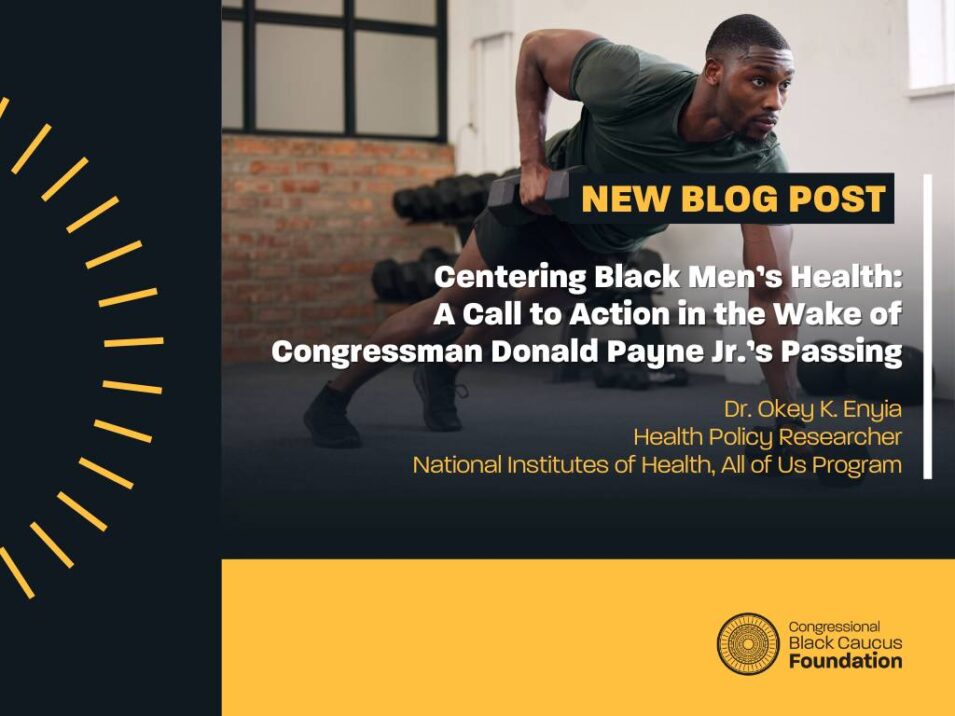As we commemorate Men’s Health Month, the recent loss of Congressman Donald Payne Jr. (NJ-10) due to complications from diabetes, kidney failure, and heart disease serves as a stark reminder of the urgent need to prioritize men’s health, particularly within the Black community.
Congressman Payne Jr. was a tireless advocate, serving as Co-Chair of the Congressional Men’s Health Caucus and championing legislation like the Men’s Health Awareness and Improvement Act of 2021. His passing underscores the critical need for initiatives that address the unique health challenges facing Black men.
Despite advancements in health policy, Black men continue to face significant disparities in access to care. While legislation like the Affordable Care Act (ACA) has helped reduce the overall number of uninsured individuals, studies show that Black men still lag behind their White counterparts in access to care.
The concept of “invisibility” among Black males, as depicted in Ralph Ellison’s “Invisible Man,” resonates deeply in society today. Black men are disproportionately impacted by systemic inequities, yet remain overlooked in research and policy agendas aimed at improving men’s health and well-being.
Recent studies highlight the persistent racial disparities in access to care, with Black men being 30% more likely to be uninsured and 25% less likely to have a regular health care provider compared to White men. Structural forces such as race and gender shape these disparities, necessitating a nuanced approach to health care access. The long-standing disparities and inequities that negatively impact Black men can be mapped, in part, to the lack of sustainable, robust, and targeted research funding awards for researchers who desire to support Black men and their health. Studies have found that Black principal investigators were significantly underrepresented even after adjusting for career stage and degrees, with Black principal investigators being 40% less likely than their White colleagues to be a principal investigator. This lack of funding support results in a limited focus on the health of Black people and the invisibility of Black men’s health in research and policy agendas.
Congressman Payne Jr. cared deeply about health disparities between Black and White individuals. For example, a lower extremity is amputated due to diabetes every 20 seconds in the United States; and Black individuals are at a two to four times higher risk of experiencing diabetic-related amputations than their White counterparts. This is, in part, why Congressman Payne Jr. had introduced the Amputation Reduction and Compassion (ARC) Act in 2021. The bill proposed broadening Medicare and Medicaid coverage to incorporate peripheral arterial disease (PAD) screening and would bar reimbursement for amputation without prior arterial testing, alongside additional reforms.
To further address these disparities, we must take proactive steps to center Black men in health policy and research. This includes developing pathways to coverage for states yet to adopt Medicaid expansion, employing a multilevel approach to expanding access to care, and empowering constituents to advocate for change at all levels of government.
To be sure, the legacy of Congressman Donald Payne Jr. serves as a reminder of the urgent need to prioritize men’s health, particularly within the Black community. Much like Payne Jr., we must continue working towards achieving health equity for all. May his legacy inspire us to action.
Dr. Okey K. Enyia
Health Policy Researcher
National Institutes of Health, All of Us Program
